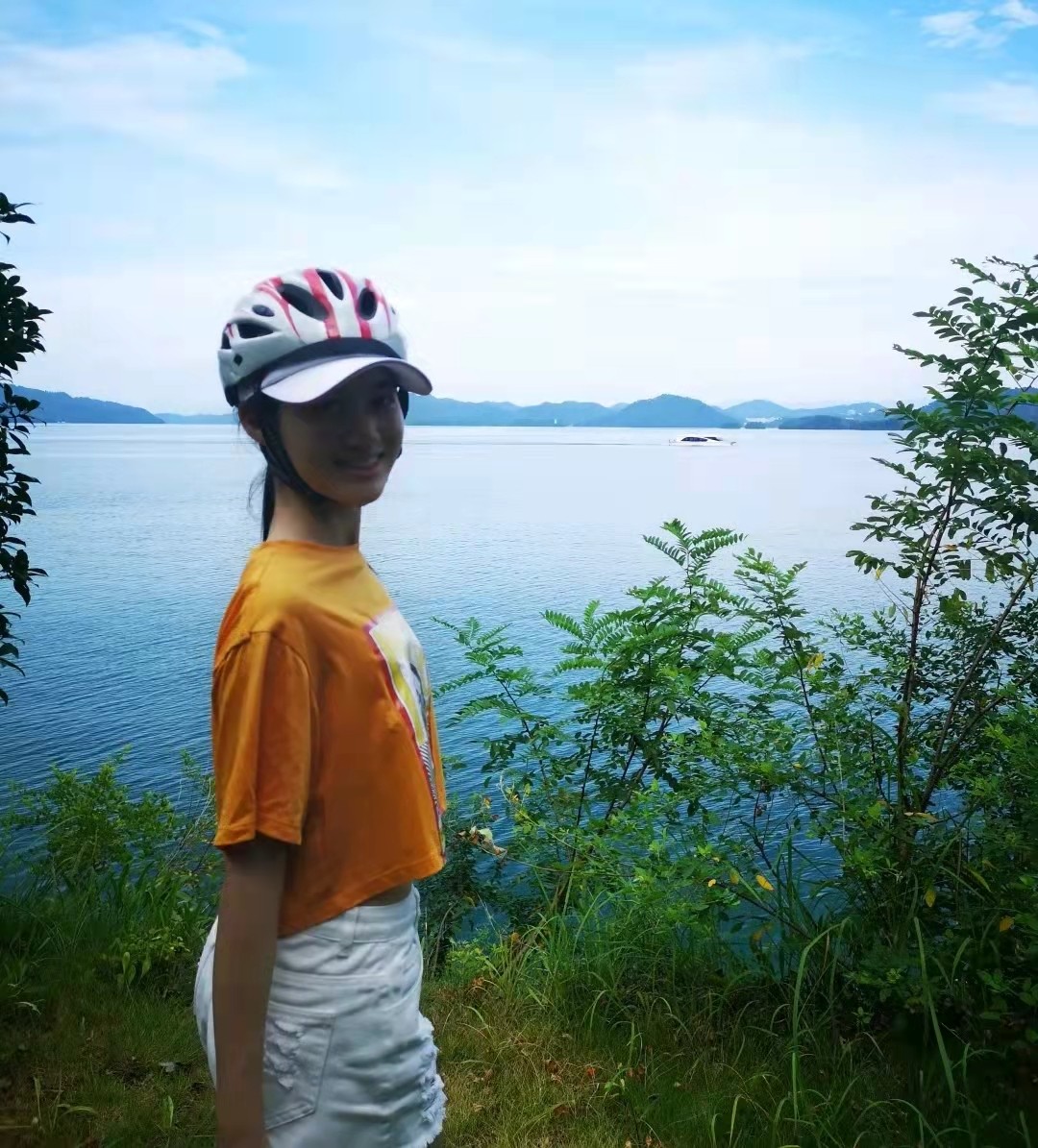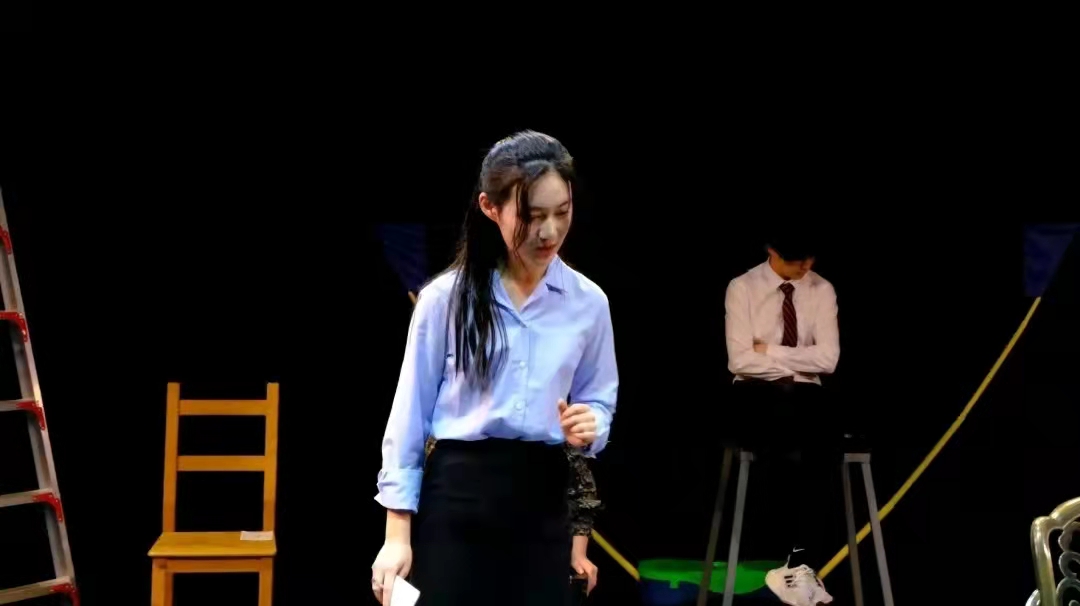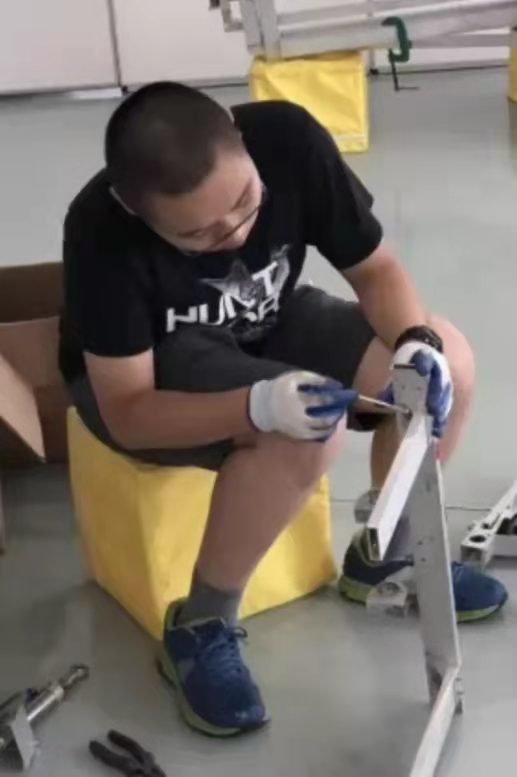Recently, Pao School’s Year 12 students have seen strong results with regard to university admissions. As of now, this year's graduates have received hundreds of admission letters from well-known universities in the United States, the United Kingdom, and other countries and regions. These world-renowned institutions include colleges in the US such as Stanford University, Brown University, University of Chicago, Cornell University, Rice University, New York University, Vanderbilt University, and Tufts University. At the same time, applications to Russell Group universities in the UK have also borne fruit, with admissions from institutions including Oxford University, Cambridge University, Imperial College of Technology, University College London, University of Bristol, University of Edinburgh, University of Warwick, Durham University, University of St Andrews and other world-renowned universities.
Whilst there is no question that exam results and university admissions are of real importance, it is just as important to develop the personal qualities that students will need to be a success beyond their time at university.
- Mark Bishop
Executive Headmaster
Pao School unlocked a lot of my latent potential
Christine
Psychology and Linguistics
University of Oxford Pre-Admission, UK
Learning how to be imperfect
“Every student seemed to have a distinct personality," Recalls Christine, describing her first impression of the school for a Pao School Open House Day. “They all shared a certain confidence and enthusiasm, as well as generous and inclusive spirit unique to Pao School.”
After transferring to Pao School when she was in middle school, Christine quickly discovered that her thinking and the way she expressed herself were different from her classmates, "Everyone could talk about philosophy and other deep topics, but I couldn’t say a word,” she says. Having received a traditional education before coming to Pao School, Christine said that she used to be timid and keep her head down.
When talking about how she has changed most at Pao School, Christine says that she is more willing to be imperfect. In her mind, allowing for mistakes and learning from failure have been essential to her growth as a person. However, in the past, she used to fear failure and strived for perfection in the pursuit of being “a good child.” But in fact, she learned at Pao School that it is acceptable to make mistakes and that one can benefit from taking chances sometimes. She thus became a bit more daring and discovered that she once perceived as “not good” or “bad” outcomes are actually beneficial for her and integral to the learning process.
This change in Christine occurred due to the school’s inclusive atmosphere and the support she received from her teachers, who endeavour to give students plenty of space to develop their personalities. Overall, Pao School is a tolerant place, whether for differences among students or for the mistakes they all inevitably make. Christine was particularly moved by the notes of encouragement she received from her teachers after she took the initiative to speak for the first time in class.

During her time at Pao School, Christine has seen her way of thinking and personality gradually evolve. Issues she once regarded as esoteric now seem increasingly fascinating to her, and she has academic discussions and debates daily with her teacher and classmates. In this environment her thoughts and expressiveness are ever more clearer, and the things that once made her anxious now have a calming effect on her.
“There is no one-size-fits-all answer at Pao School,” she says. “You can use your own ideas to develop an argument that opposes the teacher's. As long as your thought process and logic are sound, and you use solid evidence, there is no single answer that is wholly right or wrong.”
Being able to debate with teachers on an equal level has inspired Christine to come up with an expression that she believes describes her budding self-confidence and pluckiness. She calls it a “measured madness.”
Pao School has also allowed Christine to discover academic interests she never knew she had. The school’s curriculum has made her realise that all knowledge shares certain links and that the boundaries between many disciplines are not fixed. In her English literature class, the teacher Mr. McKee once compared that subject to the nation of Switzerland. Just like Switzerland shares borders as well as commercial, diplomatic and cultural links with many European countries, English literature is deeply connected with many other subjects, which helped spark Christine’s interest in linguistics, philosophy and more.
Mr. McKee once told his students, "Literature is not complex; people are complex,” which inspired Christine to explore psychoanalysis. Christine feels that without this experience of interdisciplinary teaching, she would not have ended up choosing her major – psychology and linguistics. This has been possible as the school provides students with the opportunity to explore their talents in a relatively short period of time, whilst providing a lot of support. For example, even if a teacher is not your instructor they will still take their time to help if you ask for guidance. This has helped Christine and many of her classmates become more proactive about their own growth in the classroom and outside. They strive to try new things, things that have never been done before, and find the intersection points of their different interests.

Without interdisciplinary teaching, I would not have been introduced to what I ended up choosing as a major. Pao School provides students with many opportunities to discover their own talents, and in the early stages of this process, the school provides a lot of important support. And even more importantly, even if a teacher is not your instructor, the teacher will still do their best to support you as long as you are willing to take the initiative to ask for guidance.
——Kobus van der Colff
Head of High School Drama
“There are no small roles, only small actors”
Of Christine’s many latent interests, drama is one that has especially flourished at Pao School. She describes drama as the aspect of her experience at Pao School “that will shine brightest in my eyes when I look back on it in theyears to comelater.” And, though she had no formal drama training before joining Pao School, she chose IG and IB drama classes and participated in related co-curriculars including English drama, Chinese drama and musicals out of personal interest.
Christine explains her passion for drama, saying,"Drama gives us infinite possibilities. You can be whoever you like, casting aside preconceived notions.” At the same time, Pao School’s drama community is extremely supportive, allowing students to develop “a sense of faith” in their drama endeavours. Teachers encourage students by telling them to find meaning and trust in what they do, so that they can be fully engaged with their work. The sense of trust and cohesion created by the teachers makes everyone feel that drama is larger than life. Everyone believes that "there are no small roles, only small actors".

According to Christine, IG's drama classes focus on acting, allowing students to improve their performance skills and understanding of the discipline. In addition to covering original plays, the course content also allows groups and individuals to interpret published plays. Further, IG drama teaches students how to see performance from the perspective of an actor, director, and designer respectively.
At the IB stage, the course content not only focuses on dramatic performance, but also directing, analysis and creation. Further, IB drama requires students to write a research paper about a drama genre that they have not yet studied. The students then give a presentation on the research results and do a performance in the chosen genre. In the "Director's Notebook" task, everyone selects a published script text that has never been studied and offers their own ideas on how to present the script to the audience. In addition to solo drama productions at the advanced level, IB Drama focuses on the integration of drama theory and practical content, cultivating students' individual creativity and ability to communicate through playacting.
To broaden students' horizons, last year the Drama Department arranged to work with the Shanghai Theater Academy to launch a Peking Opera class, allowing students to experience the charm of traditional Chinese drama. At the same time, Mr. Kobus, Head of Drama at Songjiang, regularly holds drama nights to boost students’ appreciation of classic plays like "The Metamorphosis.”

Pao School has many drama clubs that allow students to deepen their exploration of playacting, says Christine, "The teachers of Pao School's drama clubs provide plenty of support so that we feel free to create. They are supportive even during the inevitable mishaps that occur during rehearsals. Further, the audiences who come to our performances know how to appreciate drama.”
Thanks to this positive learning environment, Christine can participate in different plays every semester, such as the English musical "Guys and Dolls” and the English drama "The Tempest,” as well as the Chinese dramas “Mumble Jumble,” “Writing in Water,” “The Elephant Silence,” “That's Not True,” and the most recent pre-pandemic play “Twelve Citizens.” In these plays, she has acted in many different roles, such as a psychiatrist with a twisted mind, a lonely and melancholic professor, an ordinary person living in a virtual world, and a sharp-minded juror.
Dramatic performance is not just a matter of performing on stage; in it we can see how people understand and appreciate life. As the members of the drama club see it, in an era where people like to eat fast food, they may also choose entertainment that offers instant gratification. But at Pao School, students want to go deeper. They choose entertainment that makes us think deeply about the world. They choose art.
For a drama student, with long rehearsal hours and deadlines, it is not easy to maintain self-discipline and manage your time efficiently. Christine has shown that she understands the importance of balancing different aspects of her life - intellectual, physical, and emotional – to achieve well-being for herself and the people she works with.
——Kobus van der Colff
Head of High School Drama
The purpose of learning is to gain skills,
not achieve high scores
David
Science, Technology and Society
Stanford University, USA
The bilingual education at Pao School has been hugely beneficial for my development as a learner and person. Pursuing the same knowledge using different languages gives one a more thorough understanding of the world and is also deeply inspirational. As such, Pao School students are highly motivated to step out on the world stage and act as global citizens.
Gaining skills for life in personaliszed education
Year 12 David loves technology. He has won numerous awards for his tech prowess, including the USACO Platinum Group and a Silver Medal in Programming in the China Informatics Olympiad Winter Camp National. He has also won awards in other areas, such as the IOLC Chinese Linguistics Olympiad National Silver Medal, the mathematics competition MCM/IMMC and Physics Bowl.
At the beginning of the year, David took part in a science competition run by the Tencent Group called the Rhino Bird High School Science Talent Programme – which puts talented young scientists in touch with leading professors to develop their scientific expertise. David, who worked on an AI project exploring Chinese Classical Literature to quantify to style of the “Four Great Chinese Novels”, won third prize by using innovative technological methods to analyse the texts.
David feels that learning at Pao School is unique. For instance, the IB curriculum system offers a very in-depth and personalised curriculum experience. This gives David the opportunity to explore the subjects that most interest him in a learning environment where teachers are very encouraging, and provide students with that little push they sometimes need. For example, David was originally hesitant about taking the advanced level English IB course but was recommended it by his teacher Justine Sadoff. In the end, David switched to the advanced course, and performed admirably, with his English ability improving dramatically.
Afterwards, David reflected on his bold decision, "At the time, the teacher told me to focus on the skills and knowledge I would gain from the advanced course, not just the score I would get, and emphasised that it is important to enjoy the learning process. I am happy with my decision, and because of it I have benefited a lot."
Typically, about 15% of students at Pao School choose this advanced level of difficulty every year, with great results. In the course, students cover a wide range of literary and non-literary texts, alongside different authors, regions and types of texts, as well as the connections between the different texts. Through this, students learn to investigate the nature of language and how it affects communication, reflects experience and shapes the world.
Broad interests fuel growth
David is a person who wears a lot of hats. He has a wide range of hobbies, including sports, design, computer programming and animation. He also participates in business competitions and is a member of the Student Council. David is especially pleased that Pao School is supportive of his broad array of interests. To that end, when he and his classmates sought this year to work on a "shared drawing board" project, they could count on support from the school’s IT department and especially the department supervisor Mr. Mao. Mr. Mao arranged for the students to have access to the necessary servers and domain names for the project. In the end, a seemingly very difficult project was successfully completed.


In David's view, Pao School provides students with a wealth of resources: academic, co-curricular and for their personal interests. Sometimes personal interests can be cultivated to develop a new club, such as the Organic Chemistry Experiment Club that David set up when he was in Year 11. Meanwhile, as a member of the Student Council, David discusses student proposals and holds parties and other on-campus activities with his fellow students. The school both supports these activities financially and gives the students ample leisure time during which they can hold them. As a result, students strengthen their leadership and organisational skills.
Pao School’s whole-person education approach is outstanding, teaching
children to be confident, have high standards and be diligent. Not only
that, but the school’s community is also tightly knit, like one big family,
allowing children to discover their talents and be recognised for them.
— David's mother